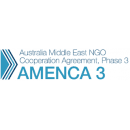Poverty & Exclusion Specialist
Job Description
This job listing expired on 2019-11-28
Browse Latest Jobs
when applying to a job online , never give your
credit card or bank account information,
or perform any sort of monetary transaction to a prospective employer. For your privacy and protection:
Latests Jobs By
AMENCA






